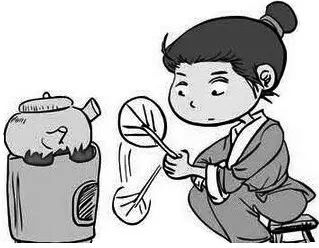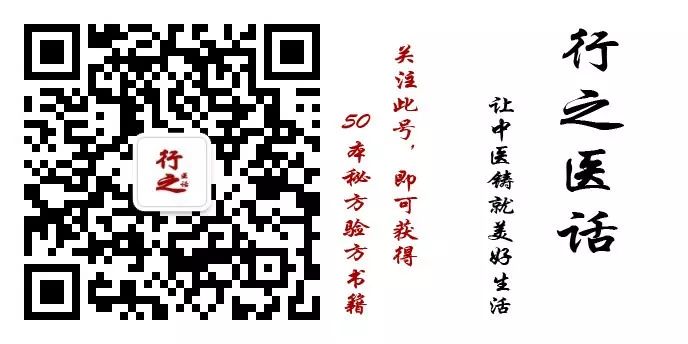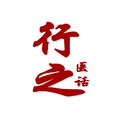

Some individuals are prone to excess heat, often experiencing symptoms such as swollen gums, sore throat, nasal congestion, and runny nose. At this time, people immediately think of taking some qing re jie du (heat-clearing and detoxifying) herbs. In fact, there are five “brothers” of heat-clearing and detoxifying herbs, each with its own specialties, and their use should align with the individual’s condition to avoid harming the body.
Niuhuang Jiedu Pian (Bovine Bile Detoxification Tablets)
Niuhuang Jiedu Pian is primarily composed of eight herbs: Niuhuang (bovine bile), Xionghuang (realgar), Shigao (gypsum), Dahuang (rhubarb), Huangqin (Scutellaria), Jiegeng (Platycodon), Bingpian (borneol), and Gancao (licorice). Many people consider excess heat to be a minor issue and think they can simply buy Niuhuang Jiedu Pian from the pharmacy. However, in TCM, “excess heat” can be categorized by the five organs: liver fire, heart fire, lung fire, stomach fire, and kidney fire, with distinctions between excess and deficiency heat. Niuhuang Jiedu Pian is mainly used for sore throat, dizziness, red eyes, swollen gums, mouth ulcers, and oral ulcers caused by excess heat and toxins. Common causes include emotional agitation, heatstroke, exposure to cold, wind-cold, overconsumption of rich and greasy foods, and lack of sleep. Patients with spleen and stomach deficiency, characterized by loose stools, should avoid Niuhuang Jiedu Pian to prevent adverse reactions; it is also contraindicated for pregnant women and children. Additionally, the mineral herb Xionghuang contains arsenic, and it should not be taken continuously for more than three days without medical supervision. Long-term excessive use can lead to arsenic accumulation and poisoning, causing symptoms such as headaches, dizziness, skin pigmentation, upper gastrointestinal mucosal damage, and drug-induced liver disease.
Knowledge Link:
Four Types of Drugs Not to Be Taken with Niuhuang Jiedu Pian
Cui Yuyan
Guiding Expert: Chen Guoming
Deputy Chief Pharmacist, Department of Pharmacy, Zhongda Hospital, Southeast University
The components of Niuhuang Jiedu Pian include artificial niuhuang, xionghuang, shigao (calcium sulfate), bingpian, dahuang, huangqin, jiegeng, and gancao. Caution is required when taking it with Western medications, and the following types of drugs should not be taken simultaneously with Niuhuang Jiedu Pian.
It should not be taken with aspirin, antacids, etc. Certain substances in gancao can increase gastric acid secretion, reduce gastric mucus secretion, and lower the resistance of the gastrointestinal mucosa. Taking Niuhuang Jiedu Pian with aspirin may induce or worsen gastric and duodenal ulcers; using it with antacids may neutralize the effects of the antacids.
It should not be taken with central nervous system depressants. Niuhuang has a suppressive effect on the central nervous system, so Niuhuang Jiedu Pian should not be taken with morphine, phenobarbital, and other central nervous system depressants, as this may increase the toxicity of the depressants, leading to adverse reactions such as respiratory distress, drowsiness, orthostatic hypotension, and fainting.
It should not be taken with cardiac glycosides such as digoxin and lanoxin. Artificial niuhuang and shigao are rich in calcium ions, and taking them with cardiac glycosides may produce a synergistic effect, enhancing myocardial contractility, which could lead to arrhythmias and conduction block.
It should not be taken with sulfonamides and aminoglycoside antibiotics. The anthraquinone and gallic acid in dahuang, along with the bile acids in artificial niuhuang, can acidify urine, promoting the formation of crystals in the renal tubules from sulfonamides, damaging the epithelial cells of the renal tubules and urethra, leading to crystalluria, hematuria, urinary retention, and renal damage; aminoglycoside antibiotics are more effective in alkaline urine, while Niuhuang Jiedu Pian can acidify urine, reducing their antibacterial efficacy. (“Aging Expo (Second Half)” 2015, Issue 10)
Application of Niuhuang Jiedu Pian in Surgical Infections
Yan Hongxia, Shen Xiufen
Rongcheng People’s Hospital, Shandong Province
Niuhuang Jiedu Pian has a wide range of effects; it can be taken orally and also has good external application effects. Here are several methods for using Niuhuang Jiedu Pian for surgical infections: ① Herpes zoster: Crush Niuhuang Jiedu Pian, mix it with saline to form a paste, and apply it to the affected area 3-4 times a day; improvement can be seen within a week. ② Mastitis during lactation: Grind Niuhuang Jiedu Pian into powder, mix it with 75% alcohol to form a paste, and apply it evenly to the affected area twice a day; generally, after 3 days of treatment, the lump softens, and milk flow improves. ③ Furuncles: Grind Niuhuang Jiedu Pian into fine powder, mix it with Jingwanhong ointment, and apply it to the affected area three times a day; improvement can be seen within 3-5 days. ④ Purulent otitis media: After rinsing the affected ear with 2% hydrogen peroxide and drying it with a sterile cotton swab, blow the powdered Niuhuang Jiedu Pian into the ear once or twice a day; improvement can be seen within a week. (“Chinese Folk Therapy” 2017, Issue 7, Page 94)
Huanglian Shangqing Wan (Coptis Upper Clearing Pills)
Huanglian Shangqing Wan, also known as Shangqing Wan, is classified in the contemporary “Pharmacopoeia” as a medication for oral diseases, with effects of dispersing wind, clearing heat, and relieving fire pain, used for wind-heat invading the body. It is generally used for patients with heart fire excess type oral ulcers, characterized by sharp pain at the tip of the tongue, dry mouth, bitter taste, yellow greasy tongue coating, and red tongue. Huanglian Shangqing Wan can be selected for treatment. However, Huanglian Shangqing Wan has a cold nature and can easily cause diarrhea; if symptoms do not improve after 7 days of continuous use, medical attention is required. Additionally, individuals with poor digestive function may experience further aggravation of spleen and stomach dysfunction, leading to poor appetite and diarrhea; caution is advised. Huanglian Shangqing Wan is also not suitable for patients with hypertension, heart disease, liver disease, diabetes, or kidney disease, as it may worsen their conditions.
Knowledge Link:
Different Effects of Various Shangqing Wans
Han Decheng
Among many traditional Chinese patent medicines, there are several Shangqing Wans, such as “Shangqing Wan,” “Ruan’s Shangqing Wan,” “Huanglian Shangqing Wan,” “Niuhuang Shangqing Wan,” “Qiongju Shangqing Wan,” and “Mingmu Shangqing Wan.” Although they are all Shangqing Wans, their effects differ.
Shangqing Wan:It is an empirical formula composed of 12 herbs, including Dahuang (rhubarb), Huangqin (Scutellaria), Huangbai (Phellodendron), Lianqiao (Forsythia), Zhizi (Gardenia), Baizhi (Angelica dahurica), Fangfeng (Saposhnikovia), Jingjie (Schizonepeta), Jiegeng (Platycodon), Bohe (Mint), Chuanxiong (Ligusticum), and Juhua (Chrysanthemum). It has the effects of dispersing wind, clearing heat, detoxifying, and promoting bowel movements, mainly used for upper jiao disorders caused by wind and heat, such as dizziness, tinnitus, red eyes, swollen gums, and constipation. The dosage is 6 grams each time, taken 1-2 times a day with warm water.
Ruan’s Shangqing Wan:This is an empirical formula from an old brand, mainly composed of Ercha (catechu), Mabi (Areca catechu), Bohe (Mint leaves), Wumei (dried plum), Borsan (borax), Hezi (myrobalan), Shandougen (Sophora), Bingpian (borneol), and Gancao (licorice). It has the effects of clearing heat, reducing fire, generating fluids, and relieving thirst, used for treating sore throat, oral ulcers, insufficient body fluids, and dry mouth. Clinically, it has good efficacy for treating oral ulcers, with a dosage of 0.5 grams each time, taken 2-4 times a day.
Huanglian Shangqing Wan:This formula is derived from the “Wanbing Huichun” by Gong Tingxian in the Ming Dynasty, modified from the Shangqing Wan formula, adding Huanglian (Coptis), Shigao (gypsum), Manjingzi (Vitex), Jingjie (Schizonepeta), Xuanfu (Inula), and Gancao (licorice). It can be used for upper jiao wind-heat, dizziness, red eyes, swollen gums, oral ulcers, sore throat, ear pain, tinnitus, explosive fire eyes, dry stools, and yellow urine. This formula has stronger effects in dispersing wind and clearing heat compared to Shangqing Wan; its dispersing wind effect is stronger than that of Niuhuang Shangqing Wan. The dosage is 1 pill (9 grams) each time, taken 1-2 times a day with warm water.
Niuhuang Shangqing Wan:This formula is derived from the “Yixue Rumen” by Li Ting in the Ming Dynasty, modified from the original formula, adding Niuhuang (bovine bile), Bingpian (borneol), and other strong heat-clearing and detoxifying herbs, as well as Chisha (red peony), Danggui (Angelica), and Dihuang (Rehmannia) to enhance blood-clearing and invigorating effects. Therefore, it emphasizes heat-clearing and detoxifying, treating symptoms such as severe headaches, red eyes, swollen gums, oral ulcers, constipation, and abscesses caused by excessive fire toxins. Its dispersing wind effect is weaker than that of Huanglian Shangqing Wan. The dosage is 1 pill each time, taken 2 times a day with warm water.
Qiongju Shangqing Wan:This formula is derived from the “Jufang” in the “Chuanxiong Tea Powder” and modified accordingly. It consists of Chuanxiong (Ligusticum), Juhua (Chrysanthemum), Huangqin (Scutellaria), Zhizi (Gardenia), Manjingzi (Vitex, stir-fried), Huanglian (Coptis), Bohe (Mint), Lianqiao (Forsythia), Jingjie (Schizonepeta), Qianghuo (Notopterygium), Gao Ben (Ligusticum), Jiegeng (Platycodon), Fangfeng (Saposhnikovia), and Gancao (licorice). Chuanxiong and Juhua are the main herbs for clearing head wind, supplemented by Fangfeng, Jingjie, and Bohe to enhance wind-dispelling effects. Huangbai, Huangqin, Dahuang, and Zhizi clear upper jiao accumulated heat, guiding heat down through the two excretions, while Shizhu assists Zhizi in clearing damp-heat. This formula is suitable for various headaches, such as migraines, trigeminal neuralgia, cluster headaches, and headaches due to epilepsy. The dosage is 6 grams each time, taken 2 times a day with warm water.
Mingmu Shangqing Wan:This formula is derived from the “Mingmu Wan” in the “Wanbing Huichun” by Gong Tingxian, modified accordingly. It consists of Huanglian (Coptis), Huangqin (Scutellaria), Juhua (Chrysanthemum), Jiegeng (Platycodon), Shudahuang (processed rhubarb), Tianhuafen (trichosanthes), Shigao (gypsum), Maidong (Ophiopogon), Xuan Shen (Scrophularia), Zhizi (Gardenia), Jizhu (spiny restharrow), Chan Tui (cicada slough), Gancao (licorice), Chenpi (dried tangerine peel), Cheqianzi (plantago seed), Danggui (Angelica), Chisha (red peony), Zhihua (bitter orange), Bohe (mint), Lianqiao (Forsythia), and Jingjie (Schizonepeta). It has the effects of clearing heat, dispersing wind, and relieving pain, suitable for symptoms such as explosive fire eyes, redness and swelling, dizziness, and dry stools. The dosage is 9 grams each time, taken 2 times a day with warm water.
Each Shangqing Wan has similarities and differences in effects, and differentiation should be made when using them. All the above Shangqing Wans are contraindicated for pregnant women. (“Beneficial Reading (Medical Consultation)” 2016, Issue 6, Page 16)
San Huang Pian (Three Yellow Pills)
San Huang Pian can be used to alleviate symptoms such as red, swollen, and painful eyes, irritability, thirst, yellow urine, and constipation caused by damp-heat and excessive liver fire. San Huang Pian is composed of Dahuang (rhubarb), Huanglian (Coptis), and Huangqin (Scutellaria), with the main effects of clearing heat, detoxifying, and promoting bowel movements. Due to the strong purgative effect of Dahuang, it is contraindicated for pregnant women. When taking it, one should also avoid greasy and rich foods. Additionally, if symptoms of acute gastroenteritis or dysentery occur, patients should not self-diagnose and should use the medication under a doctor’s guidance.
Yinqiao Jiedu Pian (Silver Flower Detoxification Tablets)
Wind-heat invasion may lead to wind-heat colds, with patients possibly experiencing yellow or slightly white tongue coating, mild chills, high fever, headache with a feeling of fullness, red and swollen sore throat, dry mouth, thirst, cough, and yellow, thick phlegm. In this case, Yinqiao Jiedu Pian may be taken. Yinqiao Jiedu Pian is composed of Jinyinhua (honeysuckle), Lianqiao (Forsythia), Dan Zhu Ye (bamboo leaves), and Bohe (mint), with the main effects of dispersing wind, relieving the exterior, and clearing heat and detoxifying.
It is important to note that patients with wind-cold colds, characterized by white tongue coating, pale complexion, severe chills, mild or no fever, headache, nasal congestion, clear runny nose, itchy throat, cough with thin white phlegm, and no thirst, should avoid taking Yinqiao Jiedu Pian. When taking Yinqiao Jiedu Pian, avoid smoking, alcohol, and spicy, cold, or greasy foods.
Common colds usually resolve within 5-10 days; if cold symptoms persist for more than 10 days, it is best to stop the medication and seek medical attention. Many diseases, such as meningitis, chickenpox, epidemic mumps, and acute nephritis, have initial symptoms similar to colds. If symptoms such as sneezing and runny nose occur, and after 2-3 days the patient develops a high fever, it is likely that they have contracted influenza and should seek medical attention immediately.
Qingre Jiedu Oral Liquid (Heat Clearing and Detoxifying Oral Liquid)
In daily life, excessive alcohol consumption or the intake of warming, drying herbs and spicy foods can lead to gastrointestinal heat accumulation, resulting in constipation. Symptoms may include dry stools, abdominal distension, dry mouth, and bad breath, and may even be accompanied by flushed face, body heat, irritability, insomnia, frequent desire for cold drinks, and reduced urine output with yellowish color. TCM primarily uses heat-clearing and purging methods to moisten the intestines and promote bowel movements; in this case, Qingre Jiedu Oral Liquid can be selected for treatment. The main components of Qingre Jiedu Oral Liquid include Jinyinhua (honeysuckle), Xuan Shen (Scrophularia), Dihuang (Rehmannia), and Lianqiao (Forsythia). The main effects of Qingre Jiedu Oral Liquid are to clear heat, detoxify, and cool the blood.
Additionally, Qingre Jiedu Oral Liquid is sometimes used for colds caused by excessive heat toxins, where patients may experience sudden chills, high fever, body aches, irritability, thirst, and sore throat. Furthermore, Qingre Jiedu Oral Liquid is also effective for upper respiratory infections. However, it should not be taken by individuals with dry mouth, thin body, persistent fever, or yin deficiency heat.
It is also important to remind that traditional Chinese patent medicines are composed of multiple herbal formulas. As the saying goes, “All medicines have some toxicity,” so one should not arbitrarily increase the dosage or extend the treatment duration. Unlike health supplements, medications should be selected based on medical advice and individual conditions; self-medication with traditional Chinese patent medicines for health maintenance may lead to adverse reactions.
Note:
Using Chinese Medicine to Treat “Excess Heat” Requires Differentiation of Organs
Written by Pu Zhaohe

Heart Fire
Mainly manifested as mouth and tongue ulcers, angular cheilitis, irritability, insomnia, flushed face, thirst, yellow urine, dry stools, and a red tip of the tongue.
The treatment principle is primarily to clear heat and calm the heart. It is advisable to select Daodi Zhi (Guiding Red Pill), which can clear heat, drain fire, promote urination, and relieve constipation, especially suitable for patients with mouth and tongue ulcers and yellow urine; Huanglian Shangqing Wan can clear heat, promote bowel movements, and disperse wind to relieve pain; Daxin Kouyan Qingke Granules are more effective for mouth and tongue ulcers caused by deficiency fire.
Lung Fire
Mainly manifested as nasal cavity heat, dry cough without phlegm or phlegm with blood, dry throat and mouth, hoarseness, and tidal fever with night sweats.
The treatment principle focuses on nourishing yin, clearing heat, and moistening the lungs. Qingtang Qingfei Wan can clear the lungs and relieve the throat, eliminate warmth and stop cough, and nourish yin and moisten the lungs; Xuanmai Gancao Chongji has the effects of clearing heat, nourishing yin, and moistening the lungs, especially suitable for patients with dry cough and sore throat caused by deficiency fire; Maiwei Dihuang Wan is more suitable for patients with dry cough without phlegm, heat in the palms and soles, and tidal fever with night sweats.
Stomach Fire
Mainly manifested as burning sensation and discomfort in the upper abdomen, excessive hunger despite eating, dry mouth and bitter taste or foul breath, swollen gums, constipation, irritability, and insomnia.
The choice of medication focuses on clearing the stomach and draining fire. Qingwei Huanglian Wan can clear and drain stomach fire while nourishing stomach yin; Niuhuang Jiedu Wan (Tablets) has strong heat-clearing and detoxifying effects, especially suitable for patients with swollen gums and constipation; San Huang Pian clears heat, detoxifies, and promotes bowel movements, effective for constipation and foul breath.
Liver Fire
Patients often have a fiery temper and are prone to anger. Main manifestations include severe headaches, especially at the temples, flushed face, red eyes, dry mouth and sore throat, pain in the hypochondrium, yellow urine, and constipation, even hematemesis.
The choice of medication focuses on clearing heat, lowering fire, and soothing the liver. Dan Zhi Xiaoyao Wan can soothe the liver and clear heat, suitable for mild cases of liver fire excess; Longdan Xiegan Wan is more effective for dizziness, red eyes, rib pain, bitter taste, and ear swelling caused by liver and gallbladder damp-heat; Danggui Longhui Wan focuses on draining fire and promoting bowel movements, suitable for patients with liver and gallbladder fire excess and constipation.
Kidney Fire
Mainly manifested as dizziness, flushed cheeks, tinnitus, insomnia, five hearts burning, weight loss, and soreness in the waist and legs.
The choice of medication focuses on nourishing yin, lowering fire, and tonifying the kidneys. Zhibai Dihuang Wan mainly has the effect of nourishing yin and lowering fire; Dabuyin Wan is suitable for tidal fever and night sweats caused by yin deficiency and fire excess, cough with blood, tinnitus, and nocturnal emissions; Qiju Dihuang Wan is suitable for dizziness, photophobia, tearing, and blurred vision caused by liver and kidney yin deficiency; Erlong Zuozi Wan mainly nourishes the kidneys and calms the liver, suitable for patients with liver and kidney yin deficiency, tinnitus, deafness, dizziness, and blurred vision. (“Longevity Treasure Book” 2018, Issue 5, Page 18)
This article is excerpted from “Happy Family” 2016, Issue 9, Page 58, and “Tongdu Morning Post” June 15, 2016.


